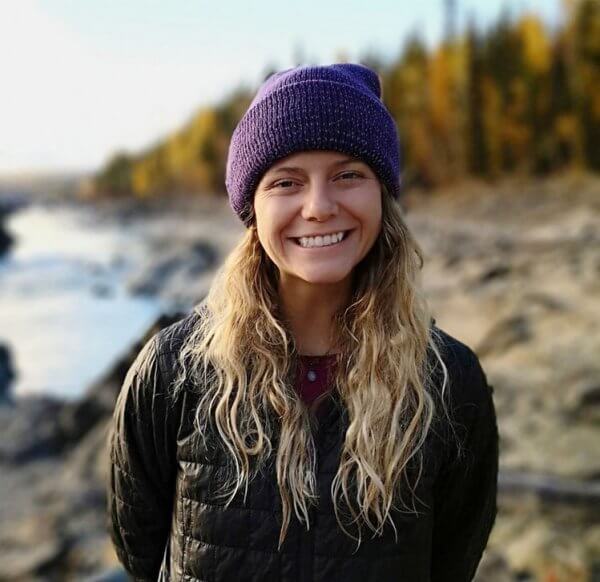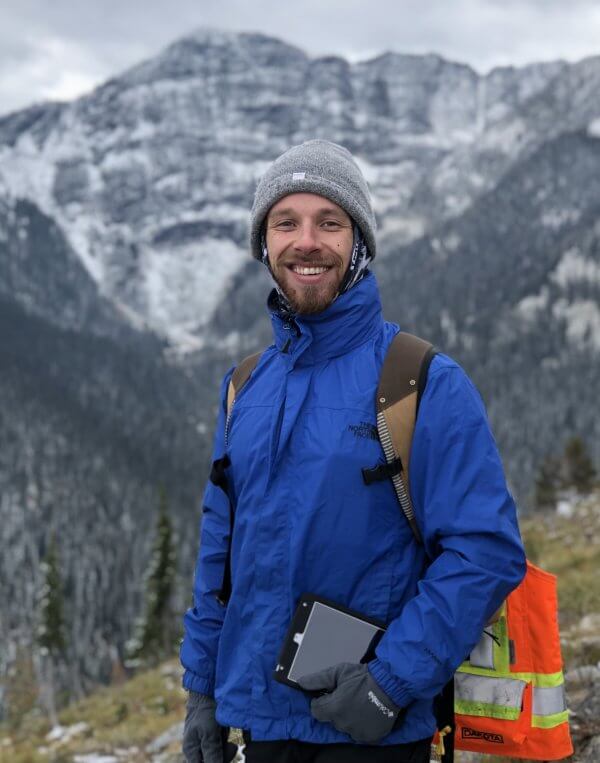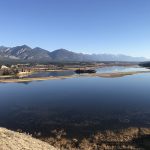Living Lakes Canada presents at virtual water conference for youth
The Water Innovation Lab (WIL) program serves as Waterlution’s vehicle for globalizing its program content to build an international network of young water collaborators.
To date, Waterlution’s WIL program has trained 1,250 youth water leaders by delivering 16 events across 5 continents and 9 countries, while engaging 275 mentors, and initiating over 100 water innovation projects.
In January, Living Lakes Canada was invited to participate in the Water Innovation Lab Mexico-Canada 2021 that took place virtually from January 29-31 and brought together over 50 emerging water leaders between the ages of 18 to 35 from both countries for a three-day event that blended traditional storytelling and applied leadership skills training with opportunities for regional and national collaborations around water.

Raegan Mallinson
As guest speakers, Living Lakes Canada program manager Raegan Mallinson and Columbia Basin Water Hub manager Santiago Botero, presented on Day 2 of the conference for the session “Watershed Management, Water Challenges (in Mexico and Canada), Understanding Monitoring and Data” that explored water governance, mechanisms for monitoring water systems and what can be done with data to make sustainable choices.

Santiago Botero
Speaking on the theme of “Leveraging Technological Innovations for Watershed Health”, Raegan and Santiago shared their experiences in community-based water monitoring (CBWM), from the perspective of collecting data through Living Lakes Canada’s CBWM programs and of managing and storing water data in the Columbia Basin Water Hub online open source database. Raegan presented in the morning session for English speakers while Santiago, who grew up in Colombia, gave the presentation in Spanish to Spanish speakers in the afternoon.
“For me the experience was incredibly rewarding,” said Raegan. “Community-based monitoring is a feasible entry point for youth wanting to steward their waters. There was so much feedback and interest from the youth about how to become involved and wanting to make a difference and kick off their careers. It felt like through sharing our experience and projects that we were providing solutions and opportunities. It was amazing to hear how committed the youth are to Indigenous reconciliation and how they articulated the importance of interweaving knowledge systems and co-developed monitoring programs. I hope I can be involved again!”
“Taking part in the WIL workshop, I got to learn about different water issues affecting different people in Mexico and how we all face similar challenges within our own community context,” said Santiago. “Some of these difficulties include the access to usable data for the proper management of hydrological resources, increased pressure from industry and climate change, and the capacity gap faced by many communities to turn data into usable knowledge in the face of climate change. This experience highlights to me how open data and open source technologies can be used globally, thanks to open collaboration, support, and creative community of developers around the world. This could mean creating models for water stewardship that can be used around the world, but modified to meet the specific needs of local communities.”
In addition to speaking Spanish, Santiago enjoyed connecting with the Latin American community at a personal level, especially in light of COVID.
“It brings me incredible amounts of hope to know that there are people everywhere working hard to protect our resources and communities and keen to adopt open source technology,” he said.
For more background on WIL Mexico-Canada: https://waterlution.org/wil-mexico-eng/
For more about the WIL program: https://waterlution.org/water-innovation-labs/
Visit the Waterlution website: https://waterlution.org/





